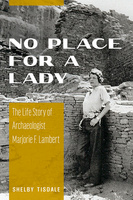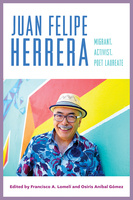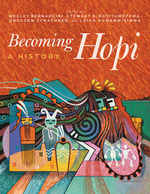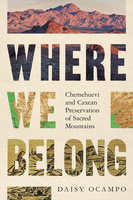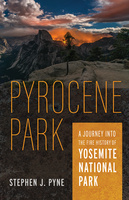The University of Arizona Press is the premier publisher of academic, regional, and literary works in the state of Arizona. They disseminate ideas and knowledge of lasting value that enrich understanding, inspire curiosity, and enlighten readers. They advance the University of Arizona’s mission by connecting scholarship and creative expression to readers worldwide.
No Place for a Lady
The Life Story of Archaeologist Marjorie F. Lambert
Marjorie Lambert’s life story is intricately entwined in the development of archaeology in the American Southwest. In Shelby Tisdale’s compelling biography, Lambert’s work as an archaeologist, museologist, and museum curator in Santa Fe comes to life and serves as inspiration for today.
Juan Felipe Herrera
Migrant, Activist, Poet Laureate
Becoming Hopi
A History
Where We Belong
Chemehuevi and Caxcan Preservation of Sacred Mountains
This comparative work dispels the harmful myth that Native people are unfit stewards of their sacred places. This work establishes Indigenous preservation practices as sustaining approaches to the caretaking of the land that embody ecological sustainability, spiritual landscapes, and community well-being.
Finding Right Relations
Quakers, Native Americans, and Settler Colonialism
Colonialism has the power to corrupt. This important new work argues that even the early Quakers, who had a belief system rooted in social justice, committed structural and cultural violence against their Indigenous neighbors.
Pyrocene Park
A Journey into the Fire History of Yosemite National Park
Persistence of Good Living
A’uwe Life Cycles and Well-Being in the Central Brazilian Cerrados
For the Indigenous A’uwẽ (Xavante) people in the tropical savannas of Brazil, special forms of intimate and antagonistic social relations, camaraderie, suffering, and engagement with the environment are fundamental aspects of community well-being. In this work, the author transparently presents ethnographic insights from long-term anthropological fieldwork in two A’uwẽ communities, addressing how distinctive constructions of age organization contribute to social well-being in an era of major ecological, economic, and sociocultural change.
Mexican Waves
Radio Broadcasting Along Mexico's Northern Border, 1930–1950
Indigenous Justice and Gender
This new book offers a broad overview of topics pertaining to gender-related health, violence, and healing. Employing a strength-based approach (as opposed to a deficit model), the chapters address the resiliency of Indigenous women and two-spirit people in the face of colonial violence and structural racism.


